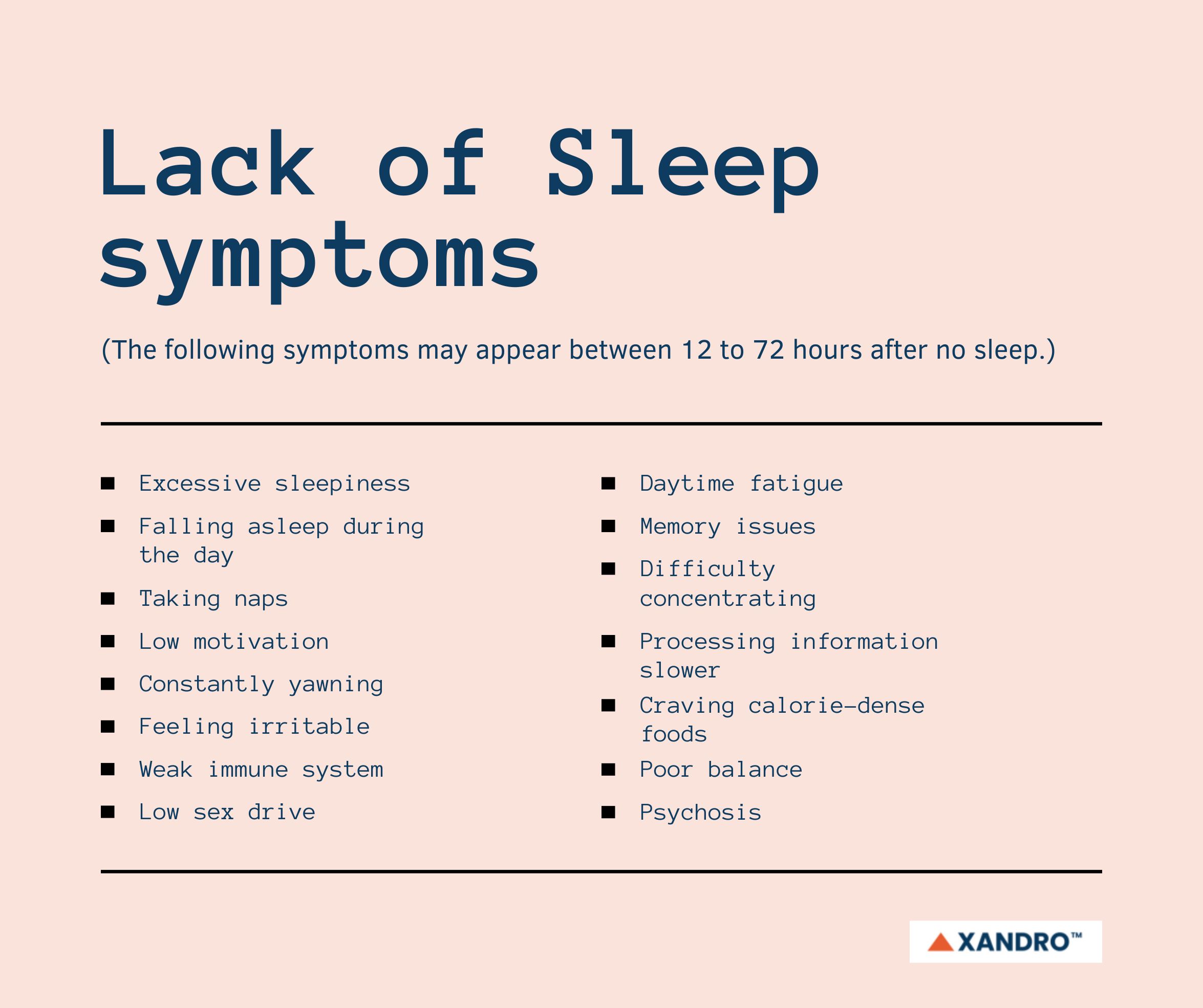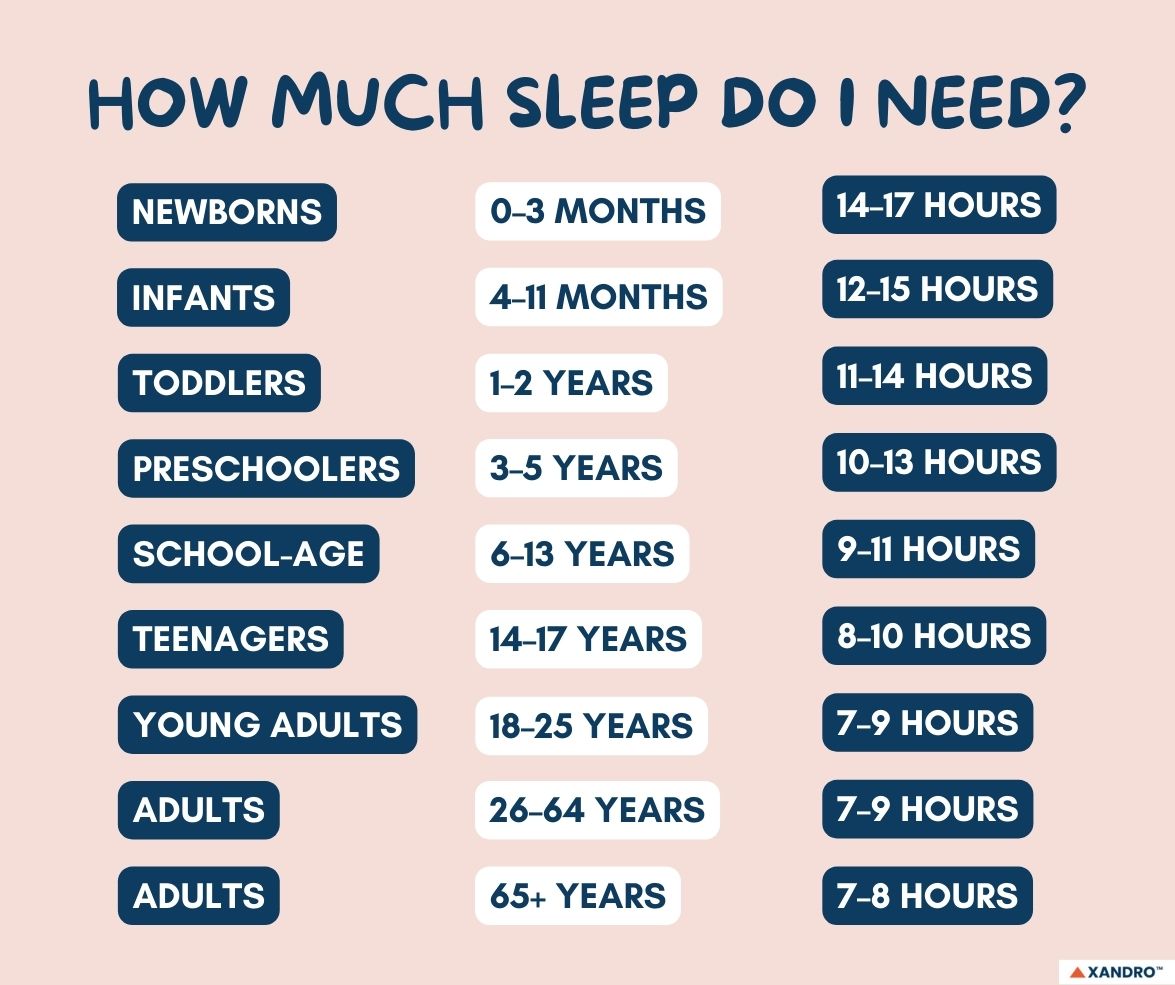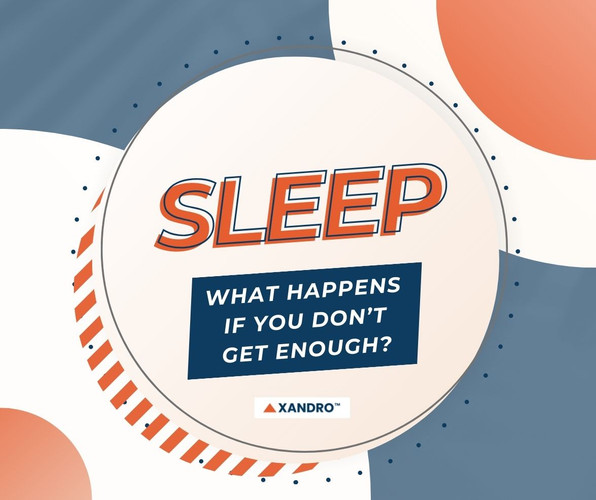Sleep Deprivation and its Effects
19th Mar 2024
What Happens If You Don’t Get Enough Sleep?
It’s something you always hear about for a healthy life; eat well, exercise regularly and get enough sleep.
Don’t do one and you’re possibly undermining the rest of your efforts.
Sleep is a human need, just like eating, drinking and breathing. Our body requires it to maintain good health and to help other systems in our body.
In the US itself, it’s believed that 50 to 70 million people have chronic sleep disorders, which shows just how prevalent it can be, but did you also know that this can lead to numerous physical and mental health problems? Not only that, but a lack of sleep can also lead to injuries, low productivity and even a higher mortality rate.
Let’s go over exactly what a lack of sleep does to your body.
What is Sleep Deprivation?
Sleep deprivation is when you’re not getting enough sleep and can occur for a range of reasons:
- Not getting enough sleep
- Sleeping at the wrong time of the day and messing with your circadian rhythm
- You don’t sleep well
- You’re not going through the different types of sleep
- You have a sleeping disorder
What are the Symptoms of Lack of Sleep?
Have you ever asked yourself, ‘How do I know if I sleep too little?’ Some symptoms of lack of sleep include:
- Excessive sleepiness
- Falling asleep when you don’t intend to
- Taking naps
- Low motivation
- Yawning constantly
- Feeling irritable
- Daytime fatigue
- Memory issues
- Finding it difficult to concentrate
- Processing information at a slower pace
- Increased appetite for more calorie-dense foods
- Poor balance
- Catching a cold from a weakened immune system
- Low sex drive
- Psychosis

What are the Effects of Not Enough Sleep?
On your body, a lack of sleep can lead to many health problems, including:
- Heart disease
- Kidney disease
- High blood pressure
- Stroke
- Obesity
- Diabetes
- Depression
- Reduced immune system function
- Lower sex drive
- Premature wrinkling and dark circles
As mentioned above, it can also affect your daily life and even endanger you. For example, other than signs to not drink alcohol while driving, you will often also see signs to pull over if you’re tired as sleepiness can cause car crashes and even death. In the elderly, a lack of sleep can lead to a higher chance of falls and then broken bones.
What happens if you don’t get the amount of sleep you need?
Other than the long-term problems, what about the short-term ones?
Some of these include:
- Not being as alert
- Being tired throughout the day
- Less ability to think, remember and then process information
- Feeling moody, which you might take out on those around you
- Less likely to engage in daily activities and exercise
- Higher chance of car accidents and mistakes
Sleep deficiency can affect people in various ways. It can:
- Interfere with daily life, such as work, school, driving and even interacting with people.
- You might struggle to focus, learn, read and react.
- You might find it difficult to judge people’s emotions.
- It can affect your mood, making you easily frustrated, grumpy or even worried.
- Children may be overly active or might misbehave, affecting their attention and school performance.
Is it OK to get 5 hours of sleep?
No, no age range can function optimally with only five hours of sleep. You need a minimum of seven hours of sleep a night. The National Sleep Foundation has published the optimal amount of hours for a good night’s sleep for each age category. It looks like this:
- Newborns (0 to 3 months): 14 to 17 hours.
- Infants (4 to 11 months): 12 to 15 hours.
- Toddlers (1 to 2 years): 11 to 14 hours.
- Preschool children (3 to 5 years): 10 to 13 hours.
- School-age children (6 to 13 years): 9 to 11 hours.
- Teenagers (14 to 17 years): 8 to 10 hours.
- Young adults (18 to 25 years): 7 to 9 hours.
- Adults (26 to 64 years): 7 to 9 hours.
- Adults (65+ years): 7 to 8 hours.

This is based on two years of research and caters to individual preferences in its slight range, but keep in mind that genetics and behavioural and environmental factors also play a role in determining how much sleep you need.
So, how much sleep is too little? Anything below seven hours a day is too little. Aim for your age range listed above, generally between 7 to 9 hours a night for adults.
How do I recover from lack of sleep fast
How to Get a Better Night’s Sleep
To help yourself get a good night’s rest, there are quite a few things you can do to help.
- Set a time to go to bed and then a time to wake up, making sure you’re getting the recommended amount of sleep each night.
- Create a bedtime routine, such as putting your phone away an hour before bed, doing some reading and then doing your skincare.
- Try to create a comfortable bedroom environment, with comfortable bedding, a quiet room that is dark and making sure it’s at a comfortable temperature.
- Exercise outside and in the sun each day, if possible.
- Avoid alcohol and caffeine before bed.
- Avoid napping frequently or naps that are longer than 30 minutes.
Frequently Asked Questions
How long without sleep is ok?
It’s important to sleep each night as going without sleep for a day or more is bad for your health. If you’re wondering, ‘What happens if you don’t sleep for 24 hours?’ then know that you may start to feel anxious, irritable and have daytime sleepiness which worsens the longer you don’t sleep.
After 36 hours, you might start to experience hallucinations, blurred or double vision, lack of concentration and motivation and even confusion. After two days, you might start to experience depression, hostility memory loss, auditory disturbances and even having moments where you feel outside your body. After three days, your hallucinations can worsen to the point of experiencing delusions.
What happens if you don’t sleep for a week?
Going this long without sleep can cause immense health conditions, if not now but down the line. At the time, it can cause complex hallucinations, plus symptoms of psychosis and being violent.
Did you know that the Guinness World Records no longer acknowledges sleep deprivation attempts? While it’s believed that people have beaten the last record (Randy Gardner’s 11 days and 25 minutes), they haven’t been acknowledged.
Gardner experienced a decline in analytical abilities, perception, memory, motor control and motivation, along with hallucinations, delusions and a very poor attention span.
Will your brain eat itself if you don’t get enough sleep?
A study found that sleep deprivation can cause your brain to feed off its neurons and synaptic connections. This study was made on mice that were forced to stay awake for five days and showed that our cells go into overdrive and start hurting the brain rather than protecting it. It was found that sleep-deprived mice had more active astrocytes (glial cells), meaning the brain appeared to be ‘eating itself,’ or simply, flushing out old and dead cells, which is actually a good thing in the short term. In the long term, this might be why those who have a chronic lack of sleep are at risk of Alzheimer’s disease and other neurological disorders.
Why do I feel better with less sleep?
Some people actually feel better with less sleep, either in the short term or due to genetics. There is a gene that allows some people to not need as much sleep, but there is only about a 1 in 12,000 chance of having this.
Some people ‘get used to’ being sleep-deprived, which might be why they feel fine. This isn’t a good thing and is detrimental to your health in the long run. For others, sleep loss can actually increase reactivity in your brain’s reward system, making you sometimes feel giddy despite sleeping less.
One of the main reasons why you might feel good with less sleep could be because you’re on one of the natural peaks of your circadian rhythm, or, it could be because you woke up at the perfect time during your sleep cycle. Our sleep goes through cycles, about 90 minutes each, and if you’re used to waking mid-cycle, such as if you wake with an alarm, you’re probably waking up tired each morning. If you wake naturally but have had less sleep, it’s likely you’ve woken at the end of your cycle and feel much more refreshed.
What is short sleep syndrome?
As mentioned above, some people need less sleep than most people. This is known as short sleeper syndrome, where you get six hours or less of sleep on most nights but feel completely rested. This is a genetic mutation and you will generally have it as a child or develop it in adolescence and typically need less sleep throughout your life. Scientists have actually found about 50 families who have the mutation.
How do I recover from lack of sleep fast?
If you’ve had a poor night’s sleep, it can be incredibly difficult to function properly. To help you get through the day until you can get your sleep schedule fixed the next night, avoid napping during the day (counterintuitive, we know, but if you have to, take a 20-minute power nap only), stop drinking caffeine in the early afternoon, head outside in the light or work in a bright place, eat a nutritious and filling breakfast, drink lots of water, take breaks throughout the day, prepare for your afternoon slump with a healthy snack and do some light exercise.
Looking to fix your sleep? Try taking Xandro Lab’s Magnesium Glycinate or read more about the benefits of magnesium on sleep!
